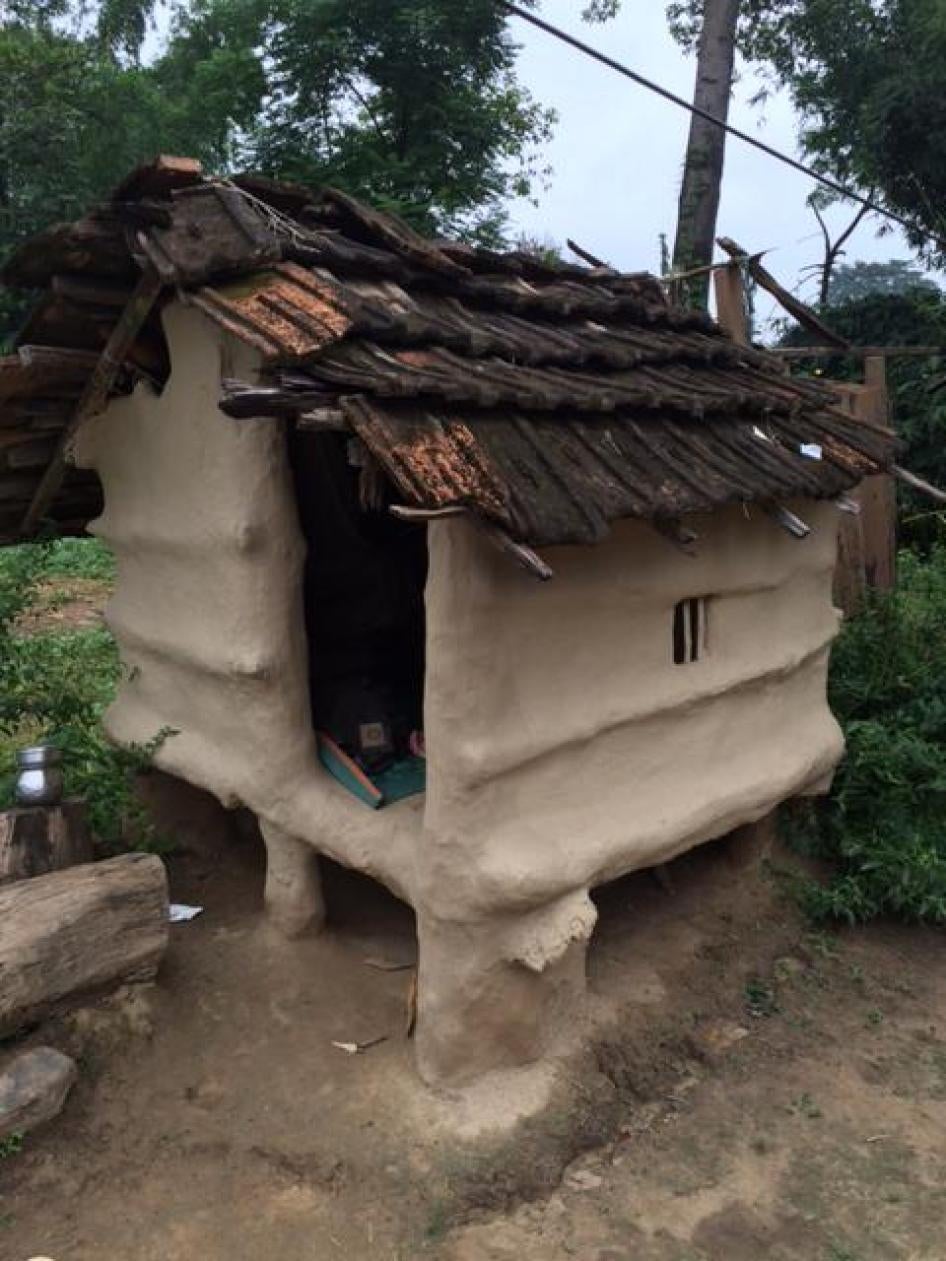Dambara Upadhyay died alone aged 26 in a tiny mud hut she was banished to, just meters from her in-laws as her family slept. Her death has forced Nepal’s government to examine a practice that isolates and stigmatizes women and girls, pushes them out of education, and sometimes costs their lives.
Chaupadi, or isolating women and girls during their period, is practiced by up to 95 percent of families in some parts of western and mid-western Nepal. The practice is fuelled by the mistaken belief that menstruating women and girls are “unclean.” They are forbidden from touching or mingling with other people, for fear that their presence will bring bad luck. They have to sleep outside the family home, usually in a small hut or shed of the type in which Dambara died.
Eight women and girls have reportedly died since 2007 while segregated due to chaupadi in Dambara’s home district of Accham. Some died from wild animal attacks, others from fire and smoke inhalation, as women struggle to stay warm in the huts during Nepal’s harsh winters.
But other destructive consequences of chaupadi are far more widespread. The stigma created by chaupadi discourages girls from attending school during menstruation, a factor exacerbated by the fact that many schools lack proper toilets to allow them to manage hygiene during the school day.
When Human Rights Watch researched child marriage in Nepal we heard from girls who missed school during menstruation. As the days of absence piled up, girls fell further behind, sometimes failing exams, and dropping out or being pulled out of school by their parents as a result. In Nepal, where 37 percent of girls marry before the age of 18, leaving school often leads to marriage.
Chaupadi was ruled illegal by the Nepal Supreme Court in 2005, but this is rarely enforced in remote districts. Dambara’s death led to Nepal’s prime minister, Pushpa Kamal Dahal, taking the unusual step of calling district officials to demand answers. The prime minister and government officials in Kathmandu should do more – they should reach out to local government authorities, especially in isolated and traditionally neglected areas, and work with them to tell communities that this practice is unnecessary, illegal, and must end.
Every month, hundreds of millions women and girls around the world menstruate. It’s as normal a biological process as men growing facial hair. Yet in almost every society, periods are shrouded in taboo and stigma, rooted in the false belief that menstruation is dirty and shameful. Governments in Nepal and elsewhere should take the lead in debunking menstruation stigma.











